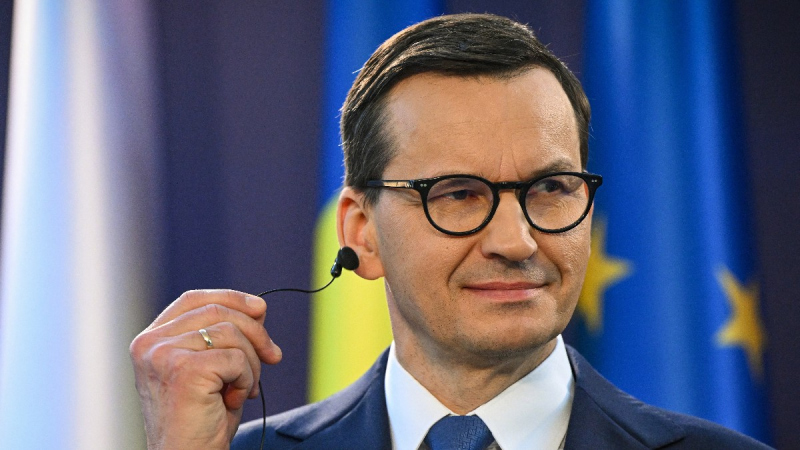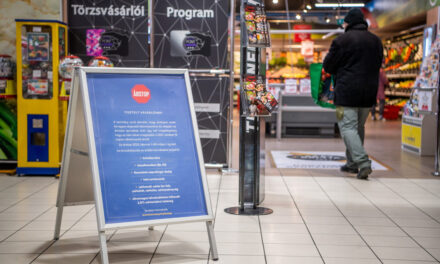Poland and Hungary have announced that if grain import restrictions are lifted in September, they are ready to take unilateral steps, blocking trade with Ukraine.
Five Central European members of the European Union, including Hungary, signed an agreement in Warsaw in which they indicate that they will continue to cooperate on the issue of Ukrainian grain. The agriculture ministers of Hungary, Poland, Bulgaria, Romania and Slovakia also asked the EU to extend the import ban until the end of the year.
Meanwhile, Poland and Hungary have announced that if the extension does not take place and the restrictions are still lifted in September, they are ready to take unilateral action.
"Poland will unilaterally block trade with Ukraine if the European Commission does not extend temporary restrictions on grain imports at least until the end of the year"
- announced Prime Minister Mateusz Morawiecki in Warsaw, at the meeting of the agriculture ministers of Eastern European countries (Hungary, Poland, Bulgaria, Romania, Slovakia).
Morawiecki also said: "Poland will not open its borders
Either the European Commission agrees to jointly develop the regulation extending the ban, or we will do it ourselves."
Minister of Agriculture István Nagy also joined Morawiecki, stating that
"Hungary will also use all means to protect Hungarian farmers".
Termination of the grain agreement will be hard, also for Hungary
Days after a deal to allow Ukraine to export grain through the Black Sea failed, Moscow launched a wave of attacks on facilities in the ports of Chornomorsk and Odessa, destroying 60,000 tons of grain. The EU's top diplomat, Josep Borell, called Russia's escalating offensive "barbaric" and said it would "result in a global food crisis" and said "EU countries should build alternative export routes for Ukraine".
As you know, Ukraine is one of the world's largest exporters of corn, wheat and other grains. After Russia invaded and blockaded its Black Sea ports last year, the EU established land export routes through its territory. In the year that has passed since then, about 60 percent of Ukraine's exports have gone through these export corridors (solidarity lane), mainly along the Danube, to the port of Constanta in Romania. The remaining 40 percent flowed through Ukraine's own ports under the now defunct Black Sea Grain Agreement. However, the opening of land routes also led to an unprecedented influx of cheap Ukrainian grain into neighboring EU countries, i.e. Romania, Poland, Hungary, Bulgaria and Slovakia. This was bought up by local traders, so there was an oversupply
- all this severely tested the solidarity of the eastern members of the bloc with Ukraine in connection with the war.
With the fall elections approaching, Poland tried to appease local farmers by closing its border to Ukrainian imports in the spring.
Hungary, Slovakia and Bulgaria followed suit, while Romania, which did not introduce its own restrictions, joined the four countries in calling for EU-level bans. As a result, in May the five countries agreed with the Commission to end the unilateral measures, in exchange for the European Commission providing a support package of 100 million euros to the affected farmers in the five listed member states. In principle, the agreement expires on September 15, but the Eastern countries want to extend it for the whole year.
According to Josep Borell, the EU should respond to Russia's escalation in the Black Sea by further opening its borders instead of restricting trade.
"If the sea route is closed, we will have to increase the capacity to export Ukrainian grain through our ports, which will put more strain on Ukraine's neighbor"
- he said before the meeting of EU foreign ministers.
As well as the need for greater commitment on the part of the EU member states in order to open the borders and facilitate the transport of Ukrainian grain from the Black Sea ports.
The day after the meeting, Ukrainian Foreign Minister Dmytro Kuleba called on the EU to
to make “maximum efforts” to facilitate grain exports from the country.
"While Russia destroys the grain agreement, attacks Ukrainian ports and tries to make money from rising food prices, Ukraine and the European Union must make maximum efforts to simplify food exports from Ukraine, especially by increasing the capacity of alternative transport corridors (Solidarity Band) as much as possible."
Despite the Polish and Hungarian "threats", one of the commission's senior officials said that it would be "premature" to say whether the restrictions need to be extended beyond the September 15 deadline.
Featured image: AFP













